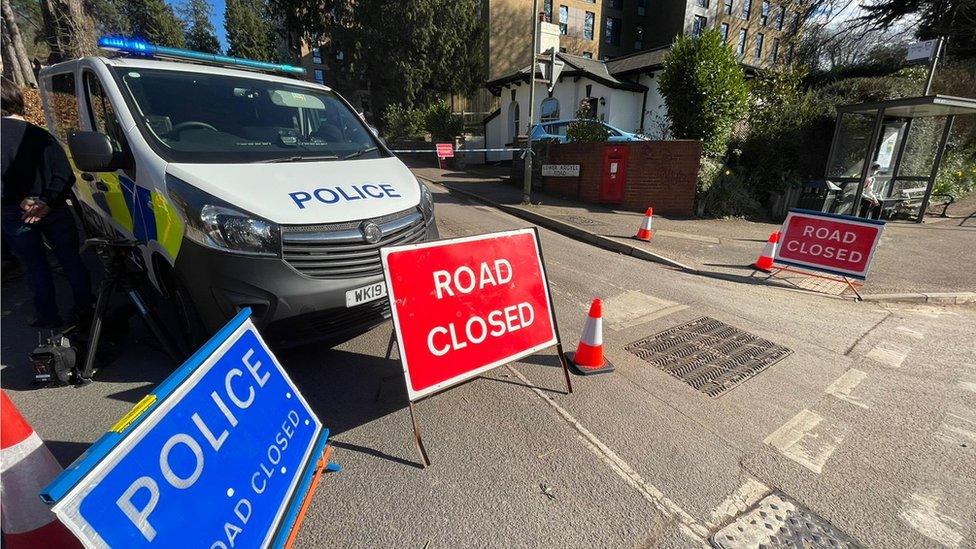Exeter WW2 bomb: Doors and windows 'blown through'
- Published
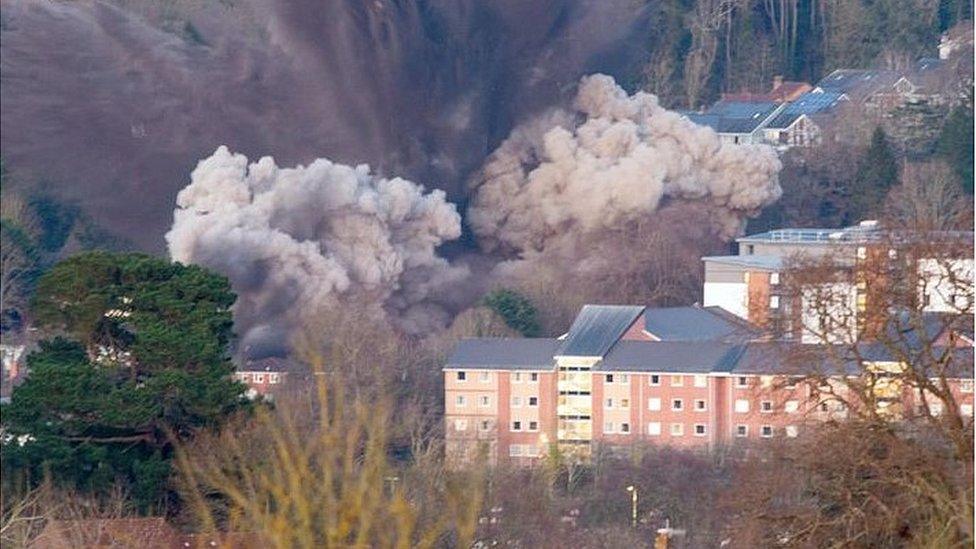
The 2,200lb (1,000kg) German bomb was discovered on an allotment due for development and blown up on Saturday
Properties in Exeter are being assessed for structural damage after the controlled detonation of a World War Two bomb.
A structural engineer said doors and windows of nearby houses had been "blown through" by the blast.
Hundreds of people evacuated from the area on Friday spent a third night away from home.
The 2,200lb (1,000kg) German bomb was discovered on an allotment due for development and blown up on Saturday.
People living within 100m (330ft) of the device must continue to stay in temporary accommodation, said police.
Others whose homes are within the wider 400m (1,310ft) cordon were allowed back on Sunday night.
Watch the moment a World War Two bomb was detonated in Exeter
Structural engineer Matthew Cridge said the blast had left a crater so big "you could easily park three double decker buses in there".
Mr Cridge, who has been inspecting nearby university accommodation, said a row of houses opposite the site "had their windows and doors blown through" and "some damage to the roofs".
"They were not as badly damaged as I was expecting so I would say the Army has done a really great job of controlling that force of the explosion," he said.
Reinforced sandbags were used to direct the force of the blast upwards, he said.
"Buildings around it were completely covered in this grey sand," he said.
"It was incredibly eerie.
"If there was a gust of wind you could hear the noise of the sand falling from the trees.
"I have never seen anything like this, and I'm not sure I'll get to see it again."
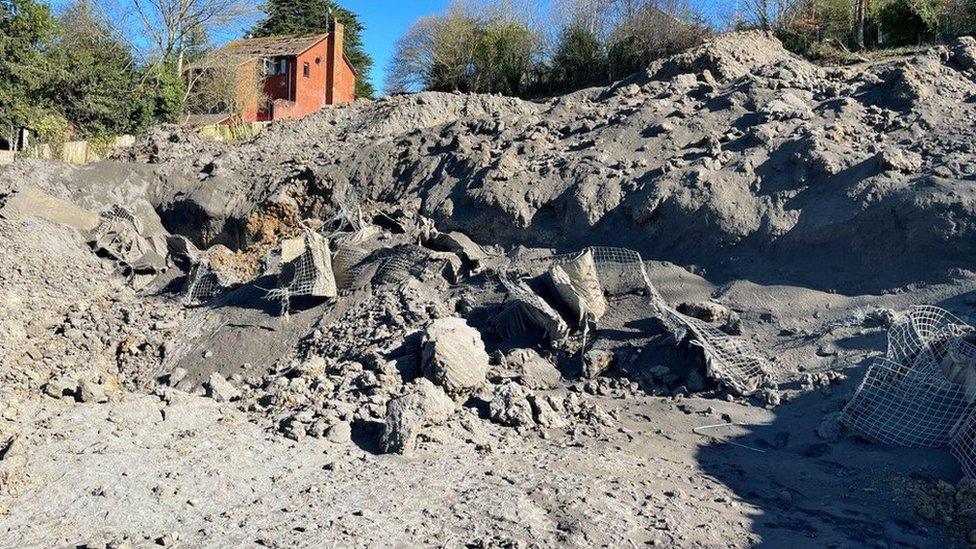
The crater was big enough to accommodate three double decker buses, a structural engineer said
Maj Chris Hunter, a former British Army bomb disposal officer, said: "They tried to mitigate the blast as best they could.
"I'm not sure I would have done anything differently.
"I have the deepest sympathy for the people who have been affected and I am sure the bomb technicians and the police would also have tremendous sympathy for them.
"But I think they did everything they possibly could do."
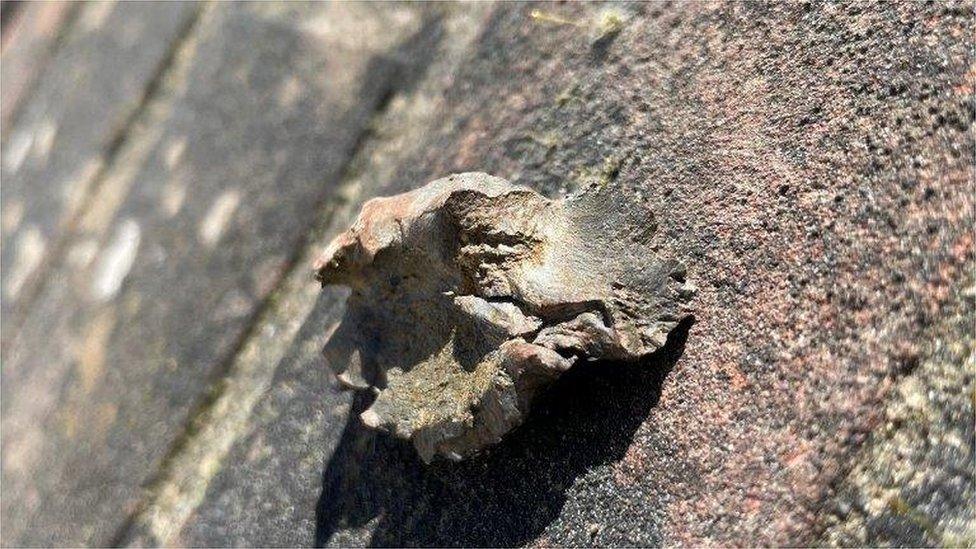
Shrapnel was among debris thrown by the controlled explosion on Saturday
Debris had been thrown at least 250m (820ft) away, said police.
Supt Antony Hart said there had been "extensive" safety measures in place and there had been no reports of injuries.
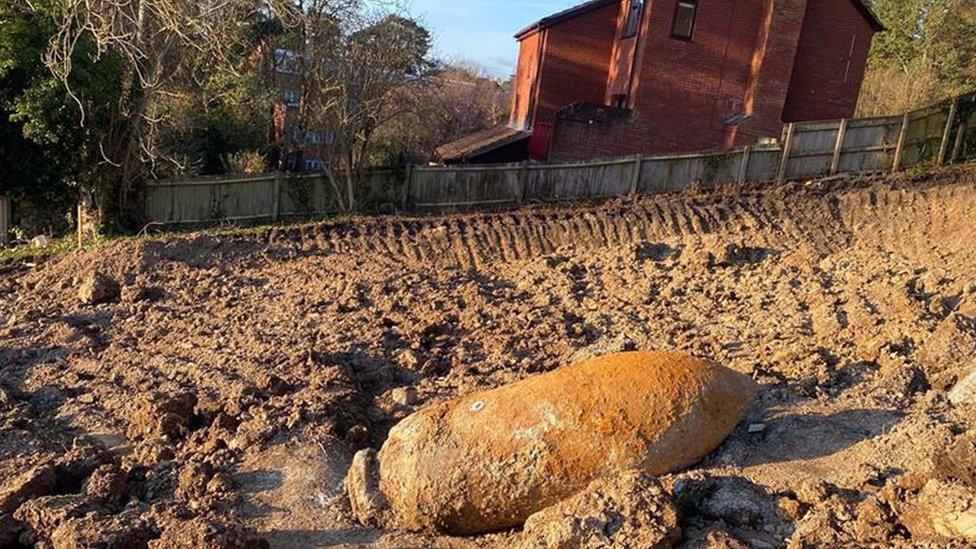
Police have reported large pieces of metal debris hitting buildings and said some properties in the 100m exclusion zone had sustained "structural damage"
The bomb was found on Friday morning by builders on private land next to the University of Exeter's Streatham campus and about 1,400 students were among the evacuees.
Bomb disposal teams destroyed the device in a 400-tonne "box" of sand just before 18:15 GMT on Saturday in an explosion heard up to five miles (8km) away.
The majority of residents who were evacuated on Saturday stayed with friends and family.
Students in private accommodation "should follow instructions from local authorities", said the university.
It expected all academic buildings on campus to be open on Monday.
The city was heavily attacked by German bombers in 19 raids during World War Two, which saw more than 7,000 devices dropped, particularly in May 1942 during the Baedecker Raids, external.


Did you witness the detonation? Are you staying away from your home because it was evacuated? Tell us your story by emailing: haveyoursay@bbc.co.uk, external.
Please include a contact number if you are willing to speak to a BBC journalist. You can also get in touch in the following ways:
WhatsApp: +44 7756 165803, external
Tweet: @BBC_HaveYourSay, external
Or fill out the form below
Please read our terms & conditions and privacy policy
If you are reading this page and can't see the form you will need to visit the mobile version of the BBC website to submit your question or comment or you can email us at HaveYourSay@bbc.co.uk, external. Please include your name, age and location with any submission.

Follow BBC News South West on Twitter, external, Facebook, external and Instagram, external. Send your story ideas to spotlight@bbc.co.uk, external.
Related topics
- Published28 February 2021
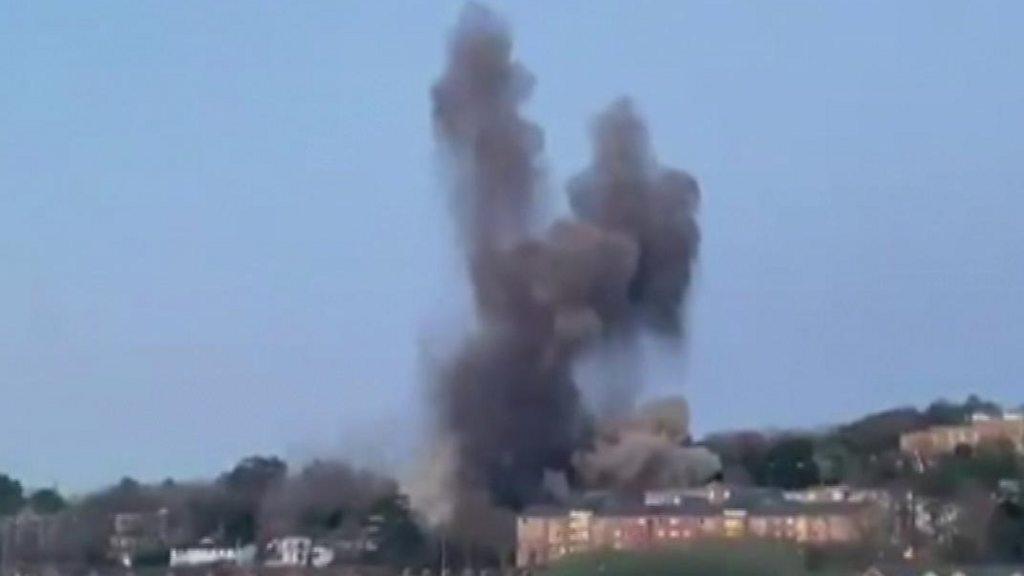
- Published27 February 2021
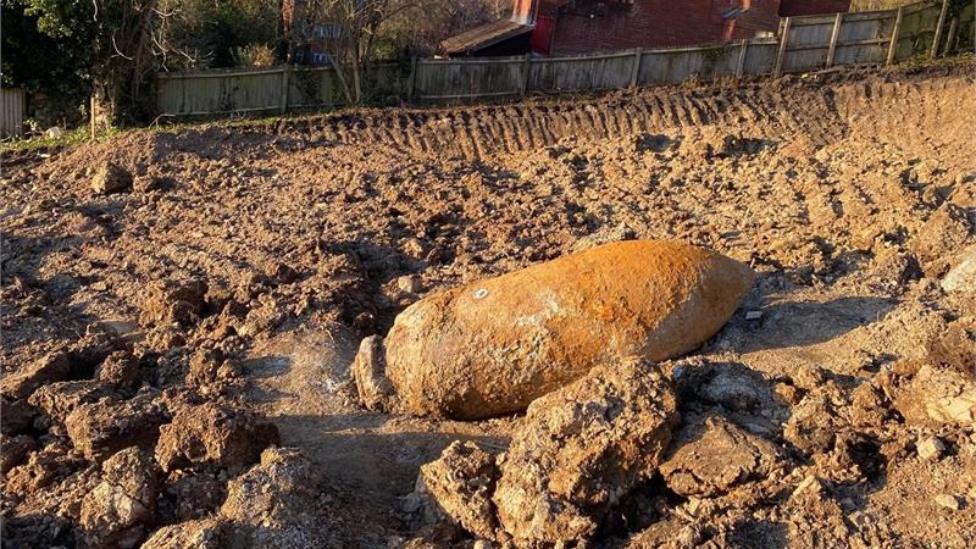
- Published26 February 2021
